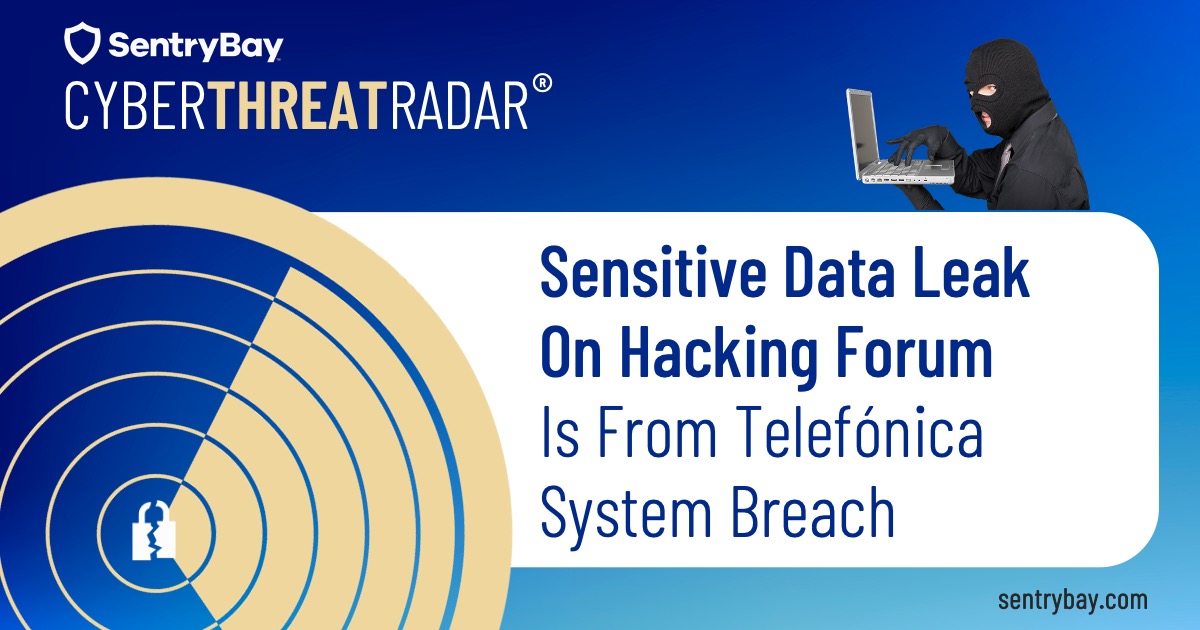
Cyber Threat Radar – Spanish telecommunications giant Telefónica, known for its operations in twelve countries and employing over 104,000 staff, has confirmed a breach of its internal ticketing system following the leak of sensitive data on a hacking forum.
Telefónica, which operates as Movistar in Spain, is the country’s largest telecommunications company. In an email statement to cybersecurity publication BleepingComputer, Telefónica admitted to the unauthorized access and outlined immediate measures taken to contain the incident.
“We have become aware of an unauthorized access to an internal ticketing system which we use at Telefónica,” the company stated. “We are currently investigating the extent of the incident and have taken the necessary steps to block any unauthorized access to the system.”
Details of the Breach
The breach involves a Jira development and ticketing server used by Telefónica for reporting and resolving internal issues. The data, totaling approximately 2.3 GB, was leaked by four attackers identified by their aliases: DNA, Grep, Pryx, and Rey. According to Pryx, the system was compromised on January 9, 2024, using stolen employee credentials. Telefónica subsequently blocked access and reset passwords for the impacted accounts.
The leaked data reportedly includes documents, tickets, and other internal information. While some of the tickets referenced customer-related data, they were linked to @telefonica.com email addresses, suggesting they may have been opened on behalf of customers rather than by customers directly. Telefónica has yet to confirm the extent of the breach or whether customer data was affected.
Notably, the attackers did not engage in extortion attempts before publicly leaking the data.
Links to Hellcat Ransomware
Three of the individuals behind the breach—Grep, Pryx, and Rey—are members of the newly launched Hellcat Ransomware group. Hellcat has already claimed responsibility for other high-profile attacks, including a breach of Schneider Electric, where 40GB of data was stolen from the company’s Jira server. The involvement of Hellcat highlights the increasing sophistication and coordination of threat actors in the modern cybersecurity landscape.
Implications for Cybersecurity: Telefónica’s Lessons
The Telefónica breach underscores the growing threat of compromised employee credentials and the importance of robust endpoint security. With attackers leveraging legitimate access to infiltrate systems, traditional defenses such as password policies or isolated access controls are often insufficient to thwart advanced tactics.
Protecting Critical Systems with Endpoint Isolation
Advanced solutions, such as SentryBay’s Armored Client, provide a proven defense against infostealing malware. By isolating endpoints and securing access to critical systems, these technologies prevent malicious actors from exploiting sensitive credentials or extracting valuable data.
The Telefónica incident demonstrates the urgent need for businesses to:
- Adopt endpoint isolation technologies to reduce the risk of credential theft.
- Implement real-time monitoring of access to internal systems.
- Regularly audit employee credentials to identify vulnerabilities.
- Educate staff on phishing and other social engineering tactics used to compromise accounts.
The Growing Need for Proactive Cybersecurity Measures
The Telefónica breach highlights the ever-present danger posed by sophisticated threat actors, such as Hellcat Ransomware. To mitigate risks and protect sensitive systems, businesses must adopt proactive cybersecurity solutions that isolate endpoints and prevent credential-based exploits. With tools like SentryBay’s Armored Client, organizations can safeguard their infrastructure, maintain operational trust, and ensure resilience against evolving cyber threats.
In today’s digital age, robust security practices are not just optional—they are essential for protecting critical systems and sustaining customer confidence.



